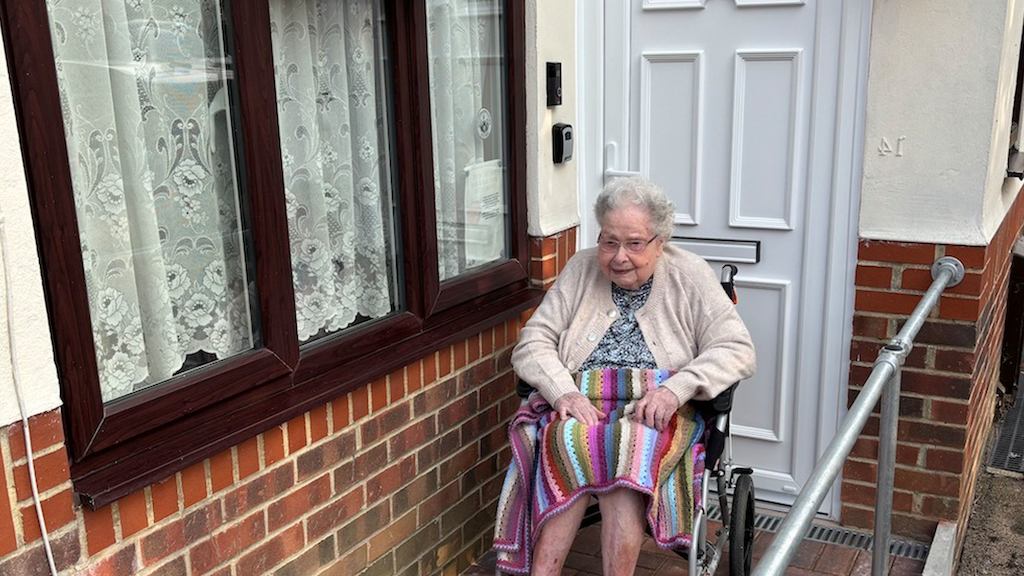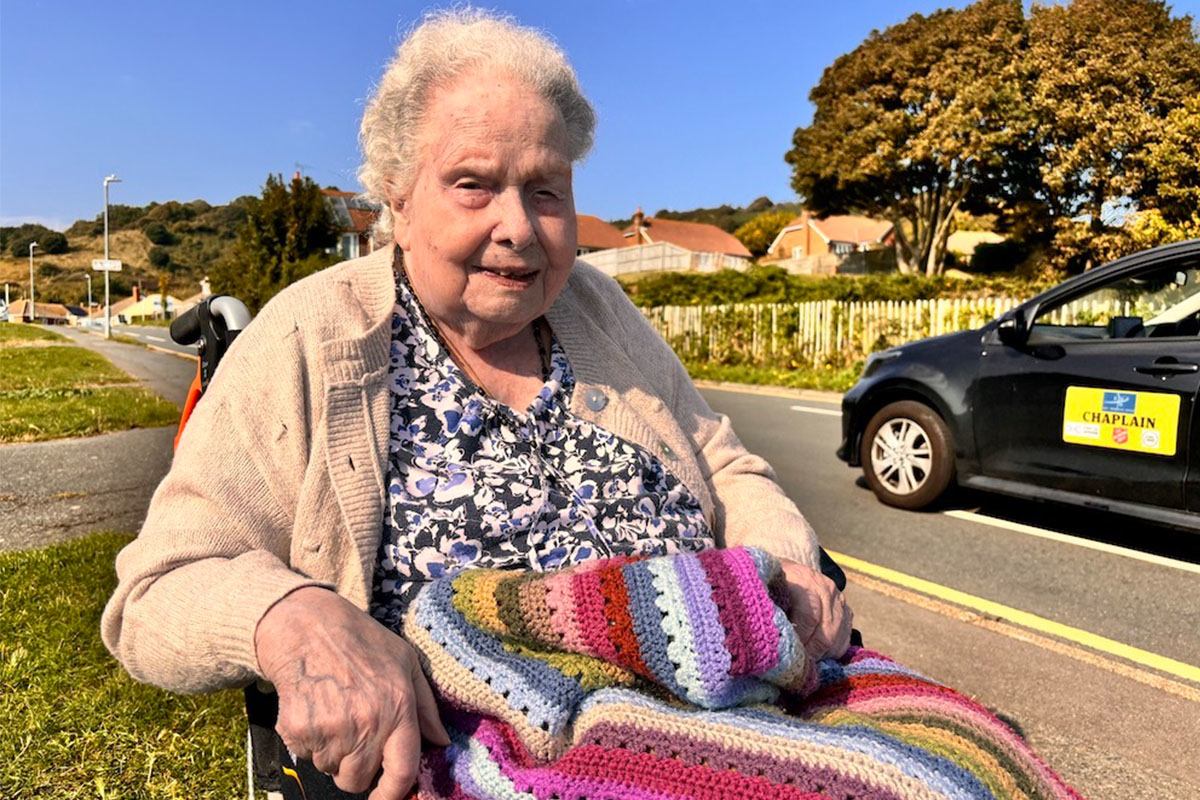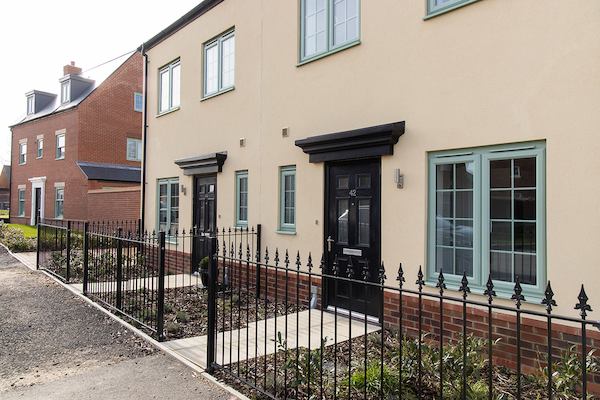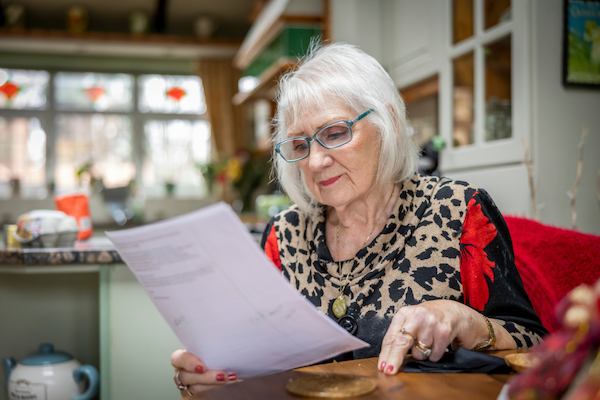Beulah’s story – How £13,000 of home improvements transformed the life of a 93-year-old blind woman

Beulah lives near her big family in Folkestone. She received grants from the government to improve her home, which have completely transformed her daily routine and quality of life.
Beulah is a 93-year-old woman from Folkestone. She was born in India as one of eight children and travelled back to England in 1948. Beulah raised a large family herself, with 7 children, 17 grandchildren, and 10 great-grandchildren.
Beulah remained active until she was 74, with many locals remembering her cycling everywhere. It was then, in 2006 that she developed an eye condition. The eye condition “took a chunk” out of her life and “turned” it.
Until 2009, Beulah lived with her late husband in a local housing association. When he passed, she remained in the same estate but downsized into a single-bed flat that was three doors down.
Since moving into the flat, Beulah’s life has changed drastically. She is now registered blind with macular degeneration and suffers from a condition known as Charles Bonnet Syndrome, which causes her brain to see things that aren’t there. Her mobility has decreased significantly, and Beulah is now housebound. She relies on four carer visits each day, where they assist her with getting out of bed, being washed, and eating.
Beulah has always been active member at her local Catholic church, where she was well-known for her “positive and upbeat spirit”. She now spends most of her days in her armchair and cannot interact with her church in the way she has always done. However, she has found new ways to connect with the world and with her church through her Alexa. She uses the smart device to listen to music, the radio, and to connect with local church services. Beulah also attends a regular Monday group meeting run by RNIB, talking to others in a support group.
What’s more, Beulah's life has recently been transformed thanks to two grants from her local council. She secured the grants from Folkestone & Hythe Council and Southern Housing, through Town & County Housing and the Peabody Group.
The first grant provided a wheelchair-friendly ramp and a wider front entrance door, which has been incredibly liberating. She has regained the ability to go outside the flat – something she was unable to do for some time. This ramp has given her back her freedom to enjoy sunny days in the garden, and reconnected her with her local church community, where she attends services and sees her congregation again. She remarked that she is lucky to be on the bottom floor of the set of flats and doesn’t know what she would do without it.
The second grant converted her tiny, impractical bathroom into a mobility-friendly wet room. When Beulah first began to struggle with her mobility, she found it increasingly difficult to get into the bath. Over time, she came to having bed baths and wasn’t able to shower or have a proper bath for years.
Since the completion of her new wet room, Beulah's morning routine has been completely transformed; she no longer has baths with sponges and instead has fresh shower every morning. Beulah said she would never forget the feeling of the first shampoo she had in years, and that her granddaughter and carers are now able to style her hair each morning, setting up her day on a completely different tone.
Beulah remarked not only on the vast difference the grants have given her in her daily care and routine, but also the renewed sense of freedom and dignity that they have given her. She feels they have allowed her to stay in a home she knows, an area she has lived in for years.

Beulah believes that people need to know how important it is to have a life, and to take steps to improve their quality of life. Something as simple as the ability to wash your hair in the morning, to connect with your community, and to sit outside in the sunshine can make the world of difference to someone’s quality of life. We all deserve to age with as much independence and respect as possible and her story is an example of the way that home improvement can allow us to do so.
Beulah would not have had these impactful home improvements were it not for the support of her council and her local Town and County Housing association. Their team was incredibly attentive and helpful, sending people over for preliminary assessments of her needs, occupational therapists, and architects, to ensure that everything integrated with her existing mobility needs.
Her story highlights the transformative nature of home improvement services, and the way that local councils can work to support the needs of their residents. It is through services such as these, and other one-stop-shop models, such as Good Home Hubs, that people receive the life-changing alterations to their home.



